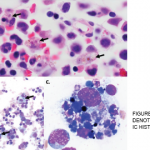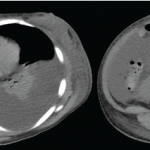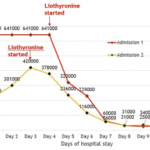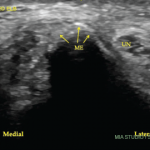During the 2020 ACR State-of-the-Art Clinical Symposium, Zoltán Szekanecz, MD, PhD, addressed the risks of vascular disease and how to manage them in patients with rheumatic diseases.


During the 2020 ACR State-of-the-Art Clinical Symposium, Zoltán Szekanecz, MD, PhD, addressed the risks of vascular disease and how to manage them in patients with rheumatic diseases.

This September marks the ACR’s fifth annual Rheumatic Disease Awareness Month (RDAM), which is designed to build support and advocate for patients with rheumatic diseases. This year’s theme, “My disease may be invisible, but I’m not,” emphasizes patients’ personal experiences…

Over the past 20 years, Eric L. Matteson, MD, MPH, emeritus chair, Division of Rheumatology, and emeritus professor of medicine at the Mayo Clinic College of Medicine and Science, Rochester, Minn., as well as a past president of the Rheumatology Research Foundation, has authored or co-authored six books about the history of rheumatic disease and…

For many months, the healthcare world has been significantly affected by the swift and pervasive effects of SARS-CoV-2, which causes COVID-19. The virus has severely affected the delivery of patient care by all providers, including those in hospitals and emergency care settings, who grappled with the response to massive influxes of COVID-19 patients, and those…

Jeffrey Lo, MD |
Hemophagocytic lymphohistiocytosis (HLH) is a life-threatening disease of immune dysregulation characterized by unchecked inflammatory responses leading to end-organ dysfunction. Primary HLH results from inherited mutations that impair the capacity for immune regulation; secondary HLH arises from the inappropriate response to an immune stimulus, such as infection, malignancy or autoimmunity. What is less well known is…

Nobuya Abe, MD, Yuichiro Fujieda, MD, PhD, & Tatsuya Atsumi, MD, PhD |
The diagnosis of rheumatic diseases requires the exclusion of other systemic disorders. Infection, hematologic conditions, malignancies and some drugs may all lead to syndromes that closely mimic rheumatic diseases, which may lead to diagnostic delays. Idiopathic multicentric Castleman disease (iMCD) is a heterogeneous group of lymphoproliferative diseases (LPDs) characterized by systemic inflammatory manifestations.1,2 As with…

Aditya S. Pawaskar, MBBS, MD, & Weishali V. Joshi, MD |
Rhabdomyolysis is a clinical syndrome characterized by muscle tissue necrosis and release of intramuscular components into the circulation. Typical manifestations include muscle pain and myoglobinuria, causing dark urine. Serum creatinine kinase (CK) enzyme levels are usually markedly elevated. Severity can range from muscle enzyme elevation in the serum of an otherwise asymptomatic patient to extremely…

Mark H. Greenberg, MD, RMSK, RhMSUS, A. Lee Day, MD, RMSK, James W. Fant Jr., MD, & Christopher G. Mazoue, MD |
A 27-year-old, left-handed man was referred to our ultrasound clinic for left elbow pain. History The patient had been a pitcher on a Minor League Baseball team. Two years before, he developed sudden, severe medial elbow pain while pitching in a game. The pain was associated with some tingling down the left medial forearm. The…

Erin Arnold, MD; William Arnold, MD; Gary Crump, MD; David Sikes, MD; Drew Johnson, MS, MBA; & Timothy Harrington, MD |
The ACR position statement on access to care proposes the goal that “… all patients have timely access to expert rheumatology care … .”1 The reality is that new and established rheumatology patient wait times are often prolonged, causing delays in necessary diagnosis and treatment. The 2005 and 2015 ACR Workforce studies document intractable and…

I should have paid more attention in medical school. If I had, I might have remembered enough about basic pathophysiology to know why everyone was suddenly pulling their patients off of lisinopril. For those of you who need a quick primer: When the pressure in the renal artery drops, the kidney secretes renin. Working together,…